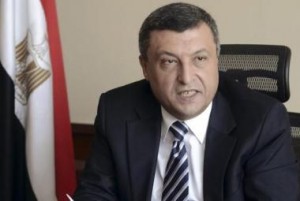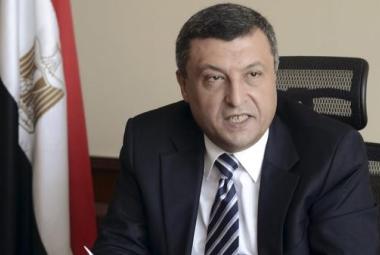
Osama Kamal, Egypt’s minister of petroleum, said Tuesday that Egypt currently finds itself in the midst of a diesel crisis, adding however that this was a result of high levels of smuggling as opposed to a shortage in supplies, and that Egypt was distributing 35,000 tonnes of diesel each day at an estimated cost of over $35m.
In statements made Tuesday during a yearly conference held for petroleum interests from various Arab countries, Kamal stated that Egypt planned on instituting its smart card programme in order to help better distribute petroleum resources between the months of April and July.
The government has attempted to decrease its funding for fuel subsidies which total one-fifth of Egypt’s GDP, however worker strikes have prevented such policies from being implemented.
Government funded petroleum subsidies for the first half of the 2012-2013 fiscal year totaled EGP 55bn ($8bn), with costs expected to reach EGP 120bn by year’s end.
Repeated fuel shortages have stirred up anger amongst Egyptian drivers and caused a number of complications for Egypt’s agricultural and industrial sectors.
He added saying that, “There does indeed exist a diesel crisis within Egypt that we cannot ignore, however it is not a diesel crisis per say as much as it a problem with distribution. We distribute 35,000 tons of diesel a day at a cost of nearly $35bn.”
He added that the Ministry of Petroleum planned to address the crisis by re-routing fuel shipments headed for stations known to engage in smuggling to other stations that do not do so.
Dakar Abdellah, member of the board of directors for the Egyptian Federation for Construction and Building Contractors (EFCBC), and a member of the Construction Committee for the Egyptian Businessmen’s Association (EBA), said that he did not agree with the minister’s statements, which he said were not received well by the country’s contracting sector.
He added that all in Egypt were aware of the extent to which the diesel crisis had affected all parts of the country and put a stop to a number of commercial and development projects, in particular with regards to road work being carried out inside the country.
Abdellah went on to describe statements made by officials from the petroleum ministry regarding the crisis as delusional and unconvincing.
With regards to the price of the dollar in Egyptian pound and its effect on Egyptian fuel consumption he said, “the decrease in the price of the pound has effected all aspects of the Egyptian economy, however with regards to petroleum, we continue to export at the same rate that we import, and in this sense we have benefitted from the rise in the price of the dollar”.
Since 31 December, the price of the Egyptian pound has decreased 8% in relation to the dollar. This has happened as clashes and instability continue to grip Egypt, stalling Egypt’s acceptance of its long awaited pending IMF loan.
Egypt has also seen a decrease in the level of its foreign currency reserves which have reached $13.6bn, less than what is needed to cover the cost of imports over the next three months. This comes as the amount of dollars in circulation in Egypt has decreased markedly, as investors and tourists have become hesitant to travel to and do business in the country.
However Kamal commented Tuesday saying: “We still possess the necessary amount of financial resources needed to continue importing petroleum products.”




